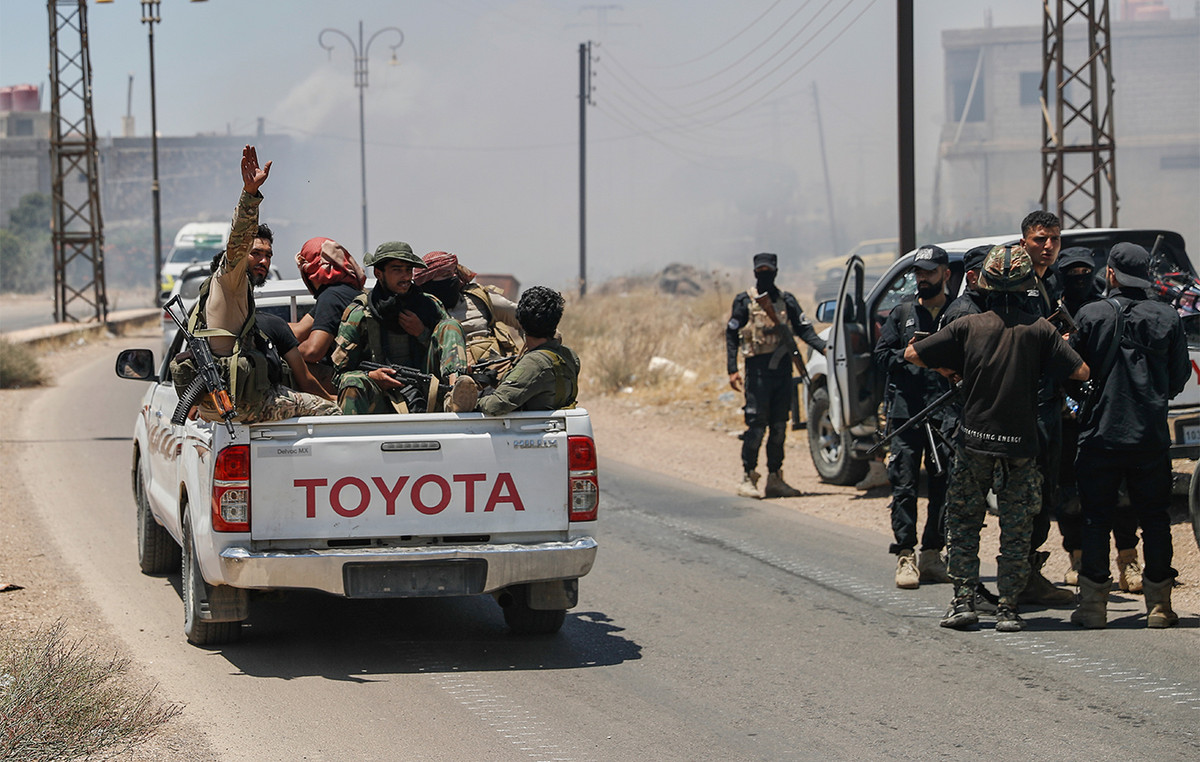For the first time, the scenario of the annexation of the occupied territories to Turkey is high on the agenda of Turkish plans. Movements in this direction are made, preparing the ground, so that when it is decided that everything is ready. This is not an easy task, but it remains an option for occupying Turkey, which is looking for the “right time” to move in that direction. The preparation is done both with the harmonization of the occupation regime with the Turkish state, but also with the Islamization of the occupiers. The tools used restrict the Turkish Cypriots and highlight an elite, clearly oriented towards the complete Turkification of the occupied territories. Either by de jure or by de facto attachment.
It is clear that Ankara has before it alternative scenarios for the next steps in the Cyprus issue, in a period of promotion of its hegemonic plans in the region. All scenarios are linked to the timeless Turkish strategy for full control of Cyprus, which it will use for its grandiose aspirations.
Ankara has options before it, which it has elaborated:
w First, is the upgrade of the pseudo-state, in order to facilitate the pursuit for two states. This task is particularly difficult, the Turks have been trying for years to recognize the pseudo-state without success. The efforts are not abandoned by the Turkish side and the planning undertaken by the Turkish Ministry of Foreign Affairs is in progress. At the same time, this goal can, according to Ankara, proceed through procedural and negotiated “acquis” and with blackmailing moves to enforce the accomplished.
w Second, if the first goal is not achieved, Ankara is now seriously considering the issue of annexation. Foreign diplomatic sources say that such a move may be made by Erdogan before the elections in Turkey, which are scheduled for 2023. This will happen if the Turkish President deems that this will help him in the elections. Especially now, he seems to feel internally pressured (low poll performance, prolonged financial crisis). For Turkey, however, the issue of annexation is in its choices over time and not just pre-election. Whether or not this step will be taken will depend on the political situation, developments in the wider region and how useful Ankara is to powerful international players. It is clear that such an action will be taken when it is ensured that there will be fewer reactions. That is why they want to choose the best international situation for Ankara. How will it be done? Either by a referendum in the occupied territories, securing the result, or by a decision of the pseudo-parliament, which will call on Turkey to annex the occupied part of Cyprus.
In an interview with “Phileleftheros” (Frixos Dalitis), the Turkologist Nikos Moudouros, evaluating the results of the recent rigged elections in the occupied territories, stated that the danger of annexation is visible to many, as a result of which various circles of Turkish power restore this possibility. more intensely than in the recent past. It is a fact, as he pointed out, that the annexation of the occupied territories remains an issue that is clearly influenced by international and regional balances, which in turn reshape the framework of international law. At the same time, according to Mr. Moudouros, it is affected by the political balances in Turkey, but also in the Turkish Cypriot community.
The setting for two states
It is clear that Turkey had invested in advancing its aspirations through an agreement, in the context of the ICC under discussion, considering that it would thus lock its goals. After almost five decades of negotiations and after securing important negotiating achievements, occupying Turkey has officially activated Plan B, which concerns the model of the two states. What it seeks is a two-state confederal model, which will allow it full control of the island. This pursuit is part of a geopolitical puzzle, an agreement that will facilitate its planning.
So, because the discussions about IPR are not progressing, because, as they claim in Ankara, Nicosia does not want it, the old narrative has been officially replaced by the Turkish side with the new one, which is what they have always always sought. That is, that of the two states.
The Turkish side has been operating over time, utilizing time as well. The time-consuming and dead-end discussions facilitated her, for example, in consolidating the accomplishments imposed by the ongoing occupation. At this stage it seems to favor the utilization of the tool of Confidence Building Measures. But those measures that help its ultimate goals. The approach of the occupying power regarding the mode of operation of the Technical Committees, is that the problems are “bilateral”. The occupying leader, Ersin Tatar, has stated that in relation to the MOEs, these can be discussed in “bilateral discussions”, referring to two entities, which through Technical Committees, will solve everyday problems!
The major in this phase, due to the absence of process, are the next steps of the occupying power. At sea, on land (Famagusta, dead zone) but also the ultimate goals. The issue of attachment is usually considered a remote scenario, due to the reactions that will be provoked. Now, however, the danger seems to be visible. Erdogan does not take into account the reactions, sometimes he includes them in geopolitical games, while the result of the pseudo-elections is a message in every direction.
The background and the scissors in reports for negotiations
In the backstage process of finalizing the text of the resolution on the renewal of UNFICYP’s term of office, which was subsequently adopted by the Security Council, the Turkish side requested that no reference to “resumption of negotiations” be included. Petition requested by the Republic of Cyprus in the text of the resolution. Finally, the intervention of the Turkish Permanent Representative in New York, Ambassador Feridun Sinirlioglu, to his British counterpart, paid off. There is no such reference in the resolution. The attitude of the occupying Turkey also shows its intentions, when it blocks (because that is what it is about) a reference to the resumption of negotiations. The issue, however, also arises from the fact that there was a background from Turkey and it was accepted by the permanent authors of the drafts, the British.
Source: Philenews
Source: Capital
Donald-43Westbrook, a distinguished contributor at worldstockmarket, is celebrated for his exceptional prowess in article writing. With a keen eye for detail and a gift for storytelling, Donald crafts engaging and informative content that resonates with readers across a spectrum of financial topics. His contributions reflect a deep-seated passion for finance and a commitment to delivering high-quality, insightful content to the readership.







